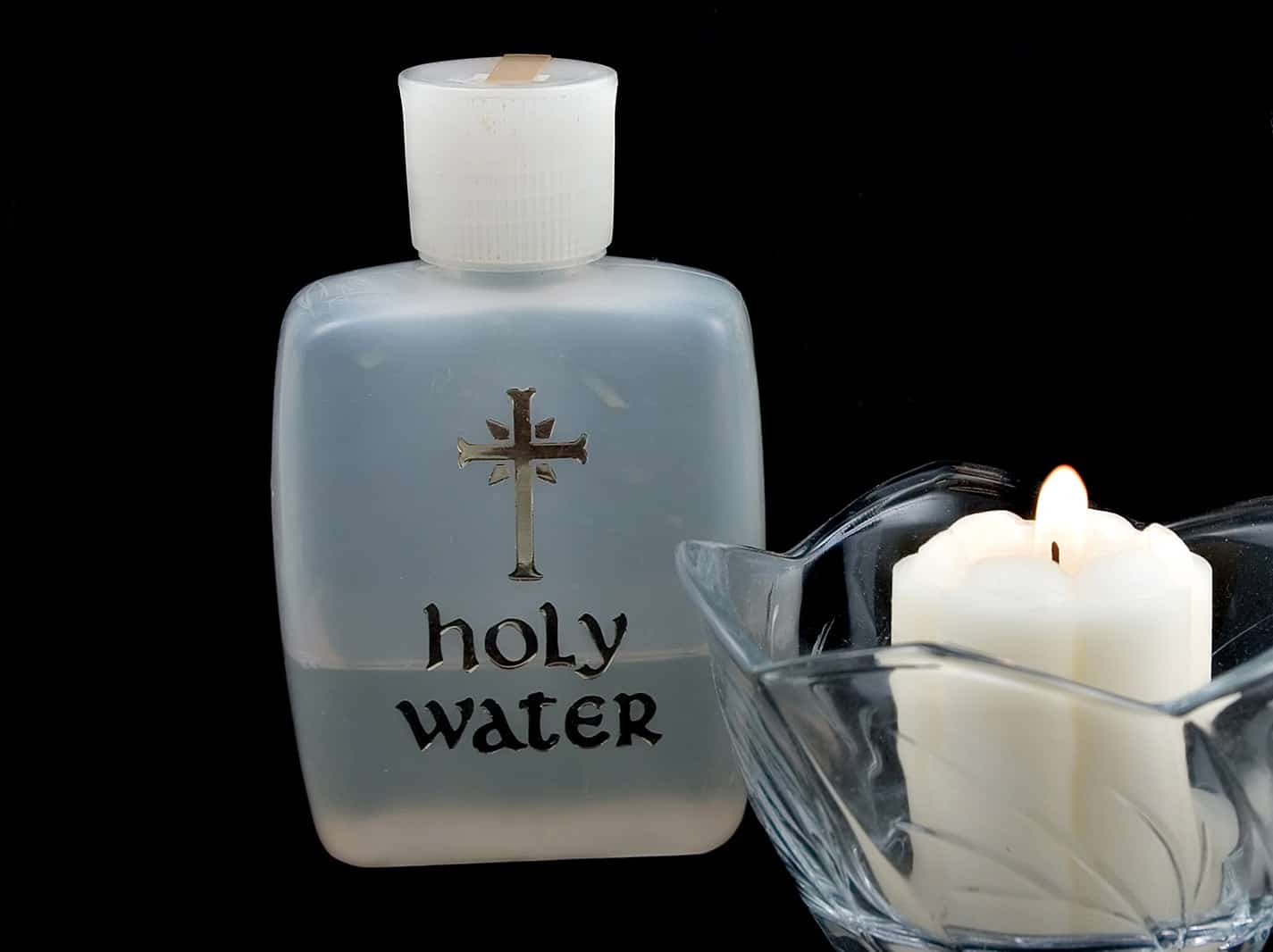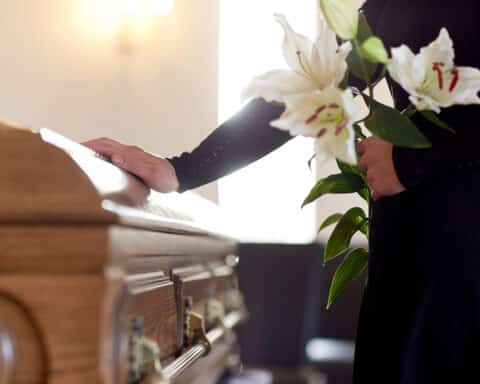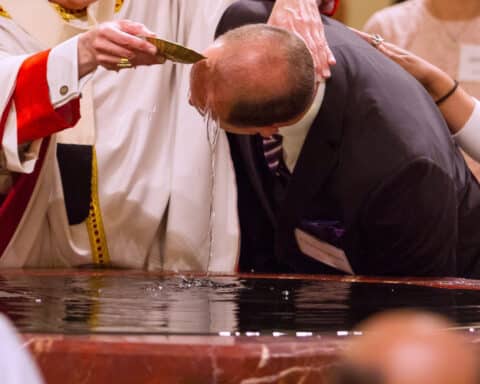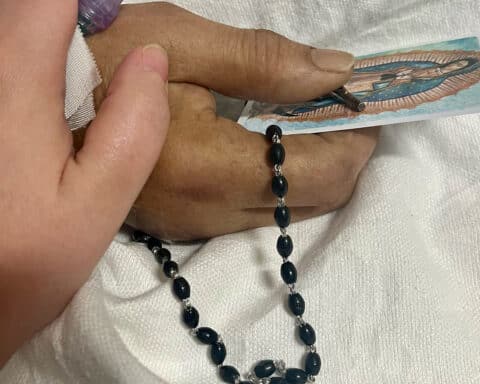Question: Are Catholics permitted to baptize a dying individual? And with just regular water? If so, how is that done and what is spoken over the person?
— Carl A Marcocci, via email
Answer: In danger of death, many of the rules about sacraments are relaxed while what is urgent and essential is emphasized. If one is dying but not imminently so, it is still best to contact Catholic clergy. However, if that is not possible because death is imminent, anyone can baptize the person since the sacrament is seen as so essential for salvation. If they are conscious, inquiry should be made as to their willingness to accept Christian faith and baptism. They should also be informed and agree that, should they survive, they should accept instruction in the Catholic faith if possible. If they are not conscious, such assurances cannot be obtained. The baptism in danger of death and absent of clergy is conducted with the bare essentials. Ordinary water can be used if blessed water is not available and, as one pours the water (three times for each member of the Trinity), the following words are said: “I baptize you in the Name of the Father, and of the Son and of the Holy Spirit.”
There are, however, other things to be morally certain of. There should be some knowledge that the person is not already baptized. If one is not sure, one way or the other, the following formula can be used: “If you are not already baptized, I baptize you in the Name of the Father, and of the Son and of the Holy Spirit.” Further, if the person is unconscious, and it is known that the person was opposed or inimical to baptism and the Christian Faith, it would be wrong to baptize them against their manifest will. If one is uncertain that an unconscious individual was or still is opposed, the baptism may be conducted. In a case of absolute emergency with death right on the doorstep, one should go right to work with any water available, saying the words as above, not waiting for inquiries of the family or seeking clergy.
There are other rituals associated with baptism, such as anointings, which are not necessary in danger of death if no priest or deacon can be found. If perchance the person survives after baptism, the ceremonies and rituals can be supplied at a later date.





